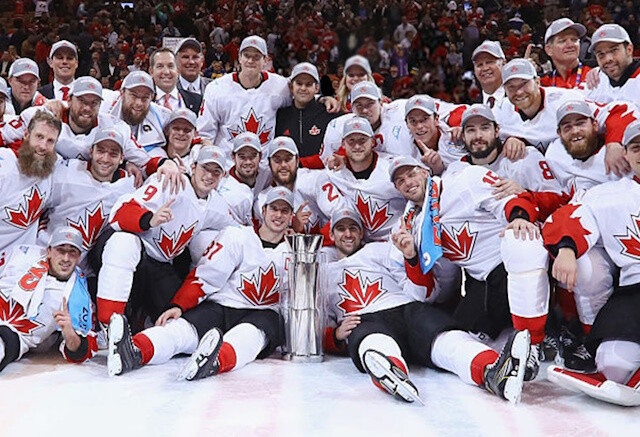The announcement that NHL players will participate in the 2026 Winter Olympics in Milano Cortina, Italy, marks a landmark moment for the sport of ice hockey. It ends a 12‑year absence of NHL involvement at the Olympic Games. The league’s stars last competed under the Olympic rings in 2014 in Sochi.
The absence was felt not only by fans but also by players who missed the chance to represent their countries on one of the sport’s grandest stages. With global attention set to turn to Italy in 2026, the return of NHL athletes promises a level of skill and intensity that only the world’s best can deliver.
Historic Return
In a deal finalized on July 2, 2025, in Zurich, the NHL, the International Ice Hockey Federation (IIHF), the NHL Players’ Association (NHLPA), and the International Olympic Committee (IOC) signed off on the participation of NHL players at Milano Cortina. The return of best‑on‑best competition on the Olympic stage was greeted as a major step forward for international hockey. IIHF President Luc Tardif declared it a tremendous day for international ice hockey and for fans.
The 2026 men’s tournament is scheduled to run from February 11 to February 22. NHL players were absent from the 2018 PyeongChang and 2022 Beijing Olympics, primarily due to a combination of scheduling conflicts, pandemic-related issues, and a failure to reach an agreement on terms.
What Does it Mean for the NHL and the International Game?
The return of NHL talent to the Olympics has multiple implications. For one, the visibility of the sport globally receives a boost. NHL Commissioner Gary Bettman stated that the agreement will showcase the skill and talent of NHL players on an international stage.
From a competitive standpoint, national teams will benefit from access to more elite talent, raising the overall level of play and potentially producing more memorable games and moments. For NHL players, representing their countries once again is a unique honor and challenge.
For the league, this also signals a renewed focus on global growth. This means tapping into international fan bases, expanding brand awareness, and enhancing hockey’s global presence. Tardif noted that the momentum from this will “build off the excitement of the 4 Nations Face‑Off” (a recent NHL-hosted event) and continue the sport’s growth.
Spotlight on Fans, Media, and Markets
Beyond on‑ice competition, this development will almost certainly affect how fans engage with the sport, media coverage, and commercial opportunities. One arena of growing significance is sports betting in hockey. With NHL talent once again participating in international competition, odds, futures markets, player performance lines, and team prop options all shift around. Sites dedicated to cups, tournaments, and league play will likely update their offerings to reflect this new dynamic.
That’s why attention is turning to platforms that track NHL betting, where odds may fluctuate based on player availability, tournament performance, injury reports, and form. As Olympic participation becomes a variable in season‑long analysis, bettors, analyst,s and operators will need to factor in the impact of international duty.
Impacts on Teams, Schedule, and Players
Having NHL players at the Olympics means that teams must plan for a break in their regular season schedule, potential injury risk, and fatigue management upon players’ return. For example, some national teams have already begun announcing preliminary rosters. High-profile NHLers, such as Auston Matthews and the Tkachuk brothers, are among those expected to represent their countries.
Teams may need to consider the workload of players, balancing the excitement and prestige of Olympic participation with the physical toll it brings during a demanding NHL season. Moreover, it’s not just about the Olympics: as part of this deal, NHL player participation in the 2030 Winter Games in France was also secured, indicating a longer-term commitment.
What to Watch as we Approach Milano Cortina
With the Olympic countdown underway, several key developments will shape how the tournament unfolds both on and off the ice.
- Roster announcements & injuries: Keep an eye on which NHL players commit to their national teams, and track injury status. For instance, forwards like Matthew Tkachuk delayed surgery in summer 2025, raising questions about readiness for both the NHL season and Olympic duty.
- Impact on NHL season structure: How will the league adjust calendars, rest periods, and team strategies around the Olympic window?
- Tournament venues & rink structure: The NHL confirmed that the Olympic tournament will be played on NHL-sized rinks (200 ft by 85 ft) in place of the larger international standard, which affects the style of play.
- Global viewership and commercial growth: With an NHL presence, expect higher international broadcast interest, increased sponsorship, and stronger engagement from non-traditional hockey markets.
- Betting market evolution: With best-on-best hockey returning to the Olympics, markets around international tournaments will become more sophisticated. Bettors and operators alike must adjust for variables previously absent for NHL player involvement.



